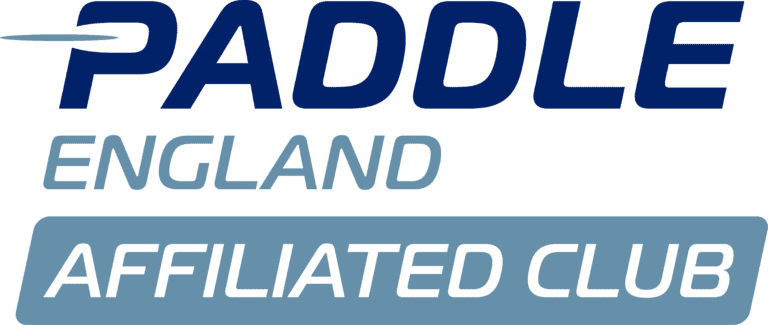- Home
- About the Club
- Handbook
- Training
Training
Objective
The Club relies upon its members to organise training courses and, in the majority of cases, to provide all the instruction. This is time given freely to the Club in order to maintain the excellent standards of training achieved to date. The principal objectives are:
- To establish a guidelines to ensure that the Club continues to promote, and maintain consistent high standards of training for all its members;
- To outline the roles and responsibilities of course organisers, the Coaching Officer and the Club’s committee, and;
- To aid the development of potential Club Instructors and encourage the sharing of best practise among Club members.
- To develop the competence of club members to an appropriate level to achieve their desired aspirations.
Whilst this policy provides general details of courses it must be recognised that the Club cannot guarantee that all of the stated courses will be available every year.
Training & Development
- The Club will encourage all members to gain qualifications either directly within the club by means of in- house coaching or indirectly by reference to external training courses.
- Specific club funded support may be given to those qualifications required to support membership interests such as safety, welfare, river leadership and coaching.
- The Club will promote and encourage the development of coaches and leaders personal skills. In particular, it is desirable that all instructors maintain, and where necessary renew, qualifications such as, but not limited to, the First Aid Certificate.
- The club will use as a reference the BC clubhouse report to monitor coaches and leader current status
Subsidised Course Fees
- The Committee shall determine each year the training requirements of the club and make known any financially supported development opportunities to the club membership (published within the Newsletters). The financial incentives will be subject to annual budget limitations and club requirements.
- The club course subsides shall be limited to 50% of the individuals incurred cost of the course but exclude the cost of travel and accommodation. The club has an annual maximum aggregate limit of subsidies per individual member of £300.
- Members wishing to apply for specified development may contact the Club Secretary, Chairman or Treasurer to make it known of their interest.
- The committee shall judge each applicant on their merits. General criteria for member requesting course subsidies:
- Shall have been a member of the club for not less than two years.
- Shall be an active member of the club.
- Courses shall be in accordance with the needs of the club.
- Members shall have long term commitment to the club.
- Shall be a member of the coaching team where appropriate or support leadership of event activities.
- Shall have obtained CRB checks where appropriate (coaching and working with children and/or vulnerable adults).
- The club may decline an application for support if club funds are limited, but shall where reasonable endeavor to look to future course support in the subsequent budget year if deemed appropriate.
- The course shall be arranged by the applicant with support and guidance from senior members. Cost of course should where possible be minimized by getting several course prices from different providers (Note unreasonable course tuition fees may not be covered and as such adjusted accordingly in the reimbursement of expenses).
- Courses fees and remuneration should be agreed in advance of application by the committee. Without prior committee sign off the club cannot guarantee financial support.
- Course fee reimbursement must be supported by original receipt for auditable purpose.
- Course fees shall only be paid on successful completion of the course and presentation of the original certificate with accompanying copy for club retained records.
- The requestor must deliver 6 sessions of 'club activities' for course fees to be reimbursed. 6 sessions means lead 6 paddles, deliver 6 coaching sessions. A weekend trip would is likely to contain multiple 'sessions'.
- If the member leaves the club within 12 months of payment, the club would kindly request that funds be reimbursed on the basis of integrity and fairness such that other longer term members may benefit from club course support.
- It is noted that if the BC bursary already pay 50% of total fee and this shall be taken into consideration in calculating the exact sums payable.
- The course subsidy will be paid within three months of course completion or submission of receipts whichever the later.
Club Coaching and River Leadership
The coaching team members have made a commitment to provide development and guidance to the club membership. They may also lead or organise courses and trips to support club development. Over the year such events shall be recorded in the “Events Programme”.
Members are encouraged to support the team in their efforts to develop the club, by attending the events and assisting in organisation and orchestration where possible.
The club also has river leaders to support the more adventurous events. The river leaders specifically provide group leadership on higher risk rivers to ensure group safety.
Validation of Coaching/ Leadership Qualifications
Members wishing to formally coach members or lead on-water trips with in the club are required to have the relevant up to date qualifications before commencing activities.
The Coaching Officer will confirm formal validation before coaches or leaders actively commence associated activities within the club from the BC clubhouse portal.
Where certificates are identified as falsified the committee are obliged to undertake the following:
- Disciplinary measures appropriate to breach of confidence (this may include dismissal or suspension of membership).
- Notification to the governing authority or association.
- Where required as a matter of legal obligation the Committee are obliged to notify the Police
Safety training
The Club believes that training in safety awareness and practice is essential and will endeavour to organise appropriate courses from time to time during the year to include:
- Safety aspects of personal equipment.
- Lifting and Handling.
- Transportation or canoes and equipment.
- Rescue skills and procedures.
- First aid skills.
- Securing boats and general boat handling.
- Accident books.
Understanding the risk exposures when paddling requires that members are familiar with basic fundamentals in different environments thus the club will provide theory sessions from time to time.
These may include:
- Session-1 Safety at Sea
- Weather conditions
- Safety equipment
- Tides and risk considerations
- Navigation
- Do & don’ts
- Personal risk assessment “do I don’t I?”
- Session-2 River Safety
- Weather conditions
- Safety equipment
- River etiquette
- Basic hydrology and risk considerations
- Do & don’ts
- Personal risk assessment “do I don’t I?”
- Session-3 Trip Management
- Trip itinerary
- Planning routes, ensuring safe access and egress
- Equipment
- Skill requirements and knowing personal limitations
- Contingency
- Risk assessment
- Emergency planning, communications, routes notification, timing
In each case the above three sessions are designed as awareness sessions to provide membership risk awareness and aversion when paddling. They should not be considered a substitute for formal courses and certification though they may support formal training on the internal BC start, discover and explore course syllabus.
Beginners Courses
- PCC will run beginners courses to encourage new members to the club. The courses available will be in General purpose kayak, sea kayak, open boat and SUP to allow the students more choice.
- The Club will organise and run winter pool sessions in order to maintain beginners’ interest in the sport.
Developing White Water Skills & White Water Leadership
- The Club will provide a system of training which allows paddlers to develop and advance in a structured manner.
- All courses must include group awareness skills and safety and rescue skills as an integral part of the course programme.
- All Club members will be given the opportunity to attend courses, both internal and external, to develop group awareness and safety and rescue skills.
The Provision of Specialist Training
- It is recognised that PCC is on a journey having been primarily a white water, Sea & Surf club; however, we are quickly becoming a club with wider scope especially in the area of SUP. Therefore the club will ensure promotion and develop other areas of the sport where reflected in membership interests/feedback.
- Wherever possible, training should be carried out using internal resources but external coaches may be appointed from time to time to meet club requirements.
- The Club will actively promote and encourage members to participate in external courses.
Responsibilities of Course Organisers
- Course organisers must notify the committee, via the Secretary/Coaching Officer, prior to publicising the course.
- Organisers must take steps to guarantee quality assurance for the course and assist the training co-ordinator to maximise the effective use of club resources.
- The course organiser is responsible for carrying out a course review and forwarding a brief summary to the training co-ordinator.
- All courses should be self-funding though courses deemed in the interest of all the membership may be subsidised by the club (refer above).
- Club courses have precedence over club equipment use, but course organisers must ensure that the Quartermaster is informed of their requirements in good time.
Re-Assessment of Training Requirements & Revisions to The Policy.
- The Club committee is responsible for completing an annual review of training needs having sought feedback from the membership.
- This meeting will be the forum for considering the effectiveness of training carried out in the previous year and for re-assessing the members’ requirements for the coming year.
- Actions arising from the annual meeting may be delegated to a sub-group or working party.
- A training budget will be presented to the AGM for approval.


